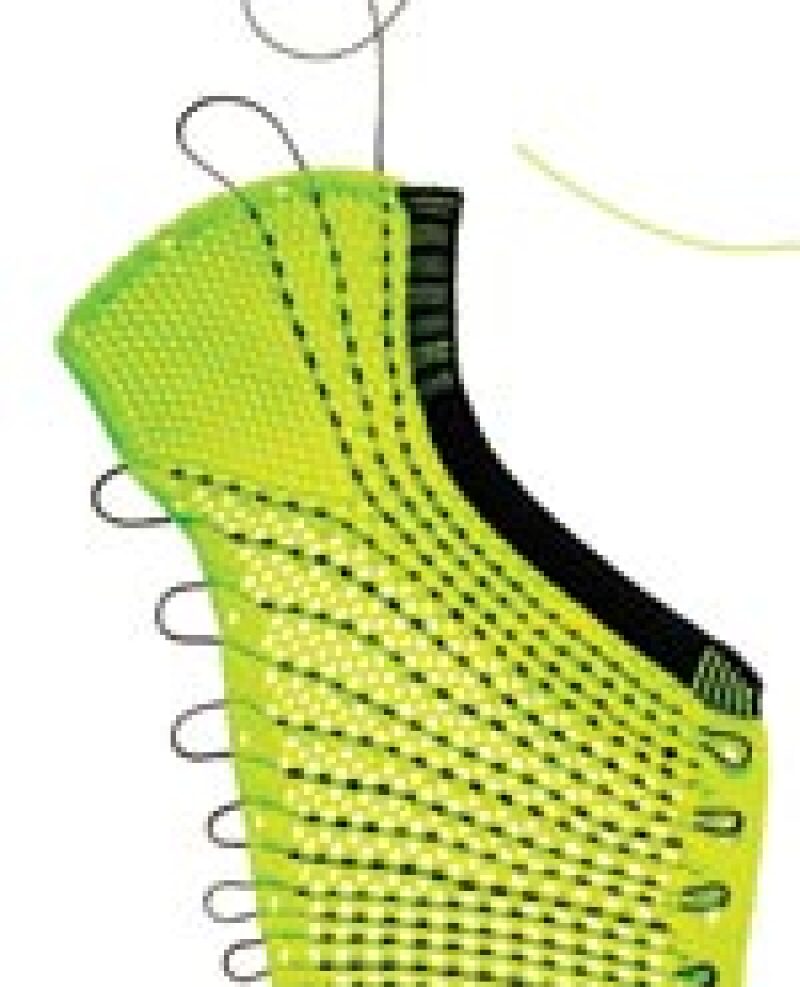
Sportswear manufacturers own a lot of patents, but rarely sue each other. "It's just like the car industry here," says a German patent lawyer. "Generally they cross-license, settle or learn to live with the infringement. It is not litigious." A case between Nike and adidas might see that change in the sportswear industry. Both companies sell a shoe made with a knitted upper part to it – to increase flexibility and reduce the number of seams needed. Nike introduced its first, the Flyknit, at the beginning of 2012 and adidas followed a few months later with the Primeknit.
Nike sued adidas in Germany for infringing a European patent covering the knitting process (which involves melting the polymer material slightly), and won an ex parte injunction in September. That was lifted the following month, though Nike says it will continue with the case.
As sportswear companies begin to include more technology in their products – including innovative materials, chemical compounds and apps that analyse your workout – this could prove to be the first battle in a long patent war.
This case was selected as one of Managing IP’s Cases of the Year for 2012.
To see the rest, click on one of the cases below.
The 10 cases of the year
A fillip for the EU pharmaceutical sector
Relief for trade mark owners in red sole saga
Australian TV streaming service held to be illegal
Smartphone war hits front page in the US
Liberalising the EU’s software market
Victory for fair dealing in Canada
Lacoste loses its trade mark in China
Google prevails in Android attack
EU test case clarifies class headings
Ten you might have missed
Canada: Ambiguous claims can invalidate patents
Russia: Certainty on parallel imports
Italy: TV formats win copyright for the first time
First FRAND cases litigated worldwide
Data exclusivity backed by Mexican courts
China: A shift over OEM manufacturing
Authors in the US able to reclaim joint copyrights










